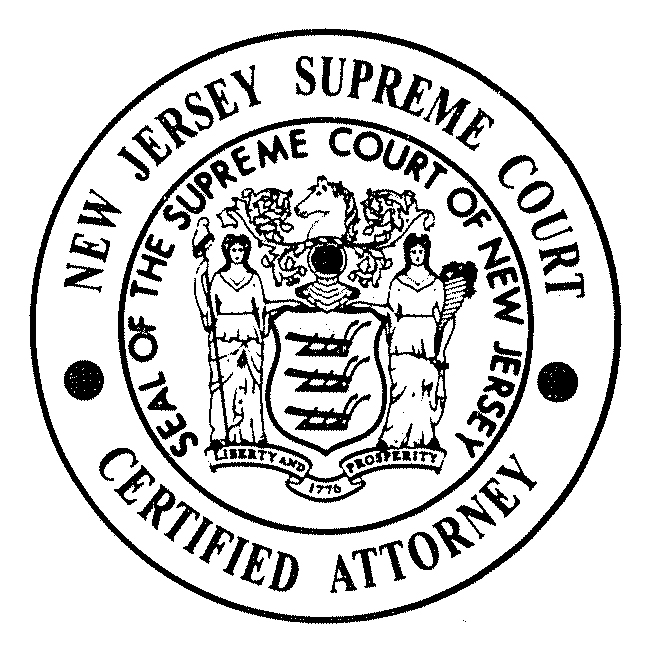Experienced NJ Employment Lawyers Fight to Protect Ocean, Middlesex and Monmouth County Workers against Pregnancy Discrimination
Employees who work hard deserve to be treated with respect, regardless of their sex. When a woman is passed over for a promotion, or not hired in the first place, because of her sex, the message sent to everyone is that it’s okay to discriminate against women. Although most people generally understand that differential treatment in the workplace on the basis of sex is wrong, sex discrimination remains a significant problem in businesses, offices, factories and other places of commerce throughout New Jersey.
If you believe you are a victim of pregnancy discrimination in the workplace, the knowledgeable attorneys at Lombardi and Lombardi, P.A. will guide you through the complicated legal process and protect your rights. We have successfully represented clients in employment discrimination cases throughout Ocean, Middlesex and Monmouth counties, including Howell, Long Branch, Marlboro and Jackson.
Facing Pregnancy Discrimination In The Workplace And Have Questions? We Can Help, Tell Us What Happened.
Brick, New Jersey Lawyers Guide You through Federal and NJ Pregnancy Discrimination Laws
A number of laws, including both federal and New Jersey laws, protect NJ workers against workplace discrimination on the basis of pregnancy. These laws recognize pregnancy discrimination, or discrimination on the basis of childbirth, as a form of sex discrimination, which is protected under Title VII of the Civil Rights Act of 1964.
Pregnancy Discrimination Act:
The federal Pregnancy Discrimination Act (PDA) prohibits employers from discriminating based on pregnancy. These prohibitions apply to all aspects of employment. This means that employers cannot discriminate when it comes to hiring decisions, firing decisions, opportunities for promotion, salaries or employee benefits. In fact, the PDA applies broadly to all “terms, conditions or privileges of employment,” so employers can’t treat pregnant workers less favorably than other employees when making practically any job-related decisions, including the handing out of job assignments and the allocation of training opportunities. In accordance with federal law, anyone who has been the victim of pregnancy discrimination in any aspect of employment can file a discrimination claim with the Equal Employment Opportunity Commission (EEOC).
Keep in mind that Title VII protections only apply to businesses with 15 or more employees. As a result, pregnant workers at extremely small companies are exempt from PDA protections against pregnancy discrimination.
Get Advice From An Experienced Employment Law Attorney.
All You Have To Do Is Call 732-906-1500 To Receive Your Free Case Evaluation.
Family Medical Leave Act:
Lawmakers also recognized the need for new parents to be able to spend time with their children in the weeks immediately following birth. As a result, in 1993, Congress passed the Family Medical Leave Act (FMLA), which provides female employees who recently gave birth, as well as new fathers, with the right to take up to 12 weeks of leave to stay home with and care for their children. So long as the employee provides the employer with reasonable advance notice, they should be given time off to take care of their newborn. The scope of the protection is broad, applying to biological parents, foster parents, and adoptive parents. Additionally, the FMLA provides workers with the right to take leave if they have a serious medical condition or to care for a close family member with a serious medical condition.
There are limitations on the FMLA protections. For example, only new parent employees who have worked for the employer for a minimum of 12 consecutive months, with 1,250 base hours, prior to taking leave are allowed to exercise their FMLA-backed right to paternity leave. Moreover, the FMLA only applies to public employers, government agencies, and large private companies; private-sector workers are covered only if the business has at least 50 employees, meaning that workers at small businesses are not eligible for the protections. Additionally, although large companies are required to allow new parents to take paternity leave, they generally do not have to pay the employees during the time off.
New Jersey Family Leave Act:
New Jersey state law also provides workers with certain protections when it comes to pregnancy. The New Jersey Family Leave Act (NJFLA) imposes requirements on businesses to grant employees time off to take care of their newborn children. NJFLA protections may even be more far-reaching than federal protections because “parent” is defined by the statute to include biological parents, adoptive parents, step-parents and even parents-in-law. The NJFLA also goes beyond childbirth protections to require employers to grant eligible employees time off from work to care for a child, spouse or parent who is suffering from a serious illness.
Like the FMLA, the New Jersey law applies to private employers with 50 or more employees, as well as all governmental agencies. However, the NJFLA only requires employees to have worked 1,000 hours in the 12-month period prior to taking leave, as opposed to the federal law’s requirement of 1,250 hours.

Excellent Staff, Pleased With The Results They Got In My Case.

Lombardi & Lombardi Is Professional And Ethical – They Go The Extra Mile.

Extremely Helpful And Friendly Staff. No One Wants To Need The Services, But They Help You Through.
Free Consultation with Knowledgeable Employment Attorneys Who Help Victims of Pregnancy Discrimination in Brick, Edison and Freehold, NJ
The experienced employment law attorneys at Lombardi and Lombardi, P.A., will do whatever it takes to ensure your rights as a worker are protected. Call us anytime to discuss your legal options or schedule a free consultation at our office in Edison, Brick or Freehold, New Jersey.






